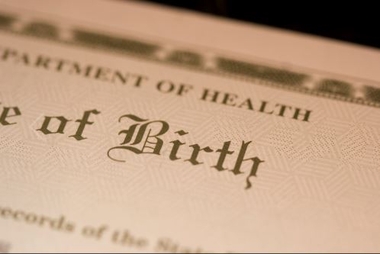Four transgender people sue for changes to birth certificates

COLUMBUS, Ohio (AP) — Four transgender people who say Ohio won't allow them to change the gender listings of their birth certificates to properly reflect their identities sued the state on Thursday.
The American Civil Liberties Union, which is representing the plaintiffs, said the state's requirement prevents them from obtaining documents essential to everyday living and subjects transgender people to discrimination and potential violence.
"Ohio's categorical bar stands in sharp contrast to the approach of nearly all other states and the District of Columbia, which have established processes by which transgender people can correct the gender marker on their birth certificate," the lawsuit says.
The action, which lists the plaintiffs as three females and one male, claims the birth certificate rule imposed by the Ohio Department of Health and the state Office of Vital Statistics is inconsistent with the state's practice of permitting transgender people to correct gender markers on their driver's licenses and state identification cards.
"A birth certificate purports to tell the world about who we are," said Susan Becker, general counsel for the ACLU of Ohio. "Ohio's birth certificate policy, however, refuses to provide transgender individuals — and only transgender individuals — with a birth certificate that accurately conveys their gender identity."
Becker said the lawsuit, filed by the ACLU, the ACLU of Ohio and Lambda Legal in the U.S. District Court for the Southern District of Ohio, could take a year or two to make its way through the courts.
The state attorney general's office said it was reviewing the lawsuit, which asks the court to declare the birth certification policy unconstitutional and to prohibit the state from refusing to allow transgender people to make adjustments. The state Department of Health declined to comment.
The plaintiffs in the case are Stacie Ray, Jane Doe and Ashley Breda, women whose birth certificates indicate their sex as male, and Basil Argento, a man whose birth certificate indicates his sex as female.
Ray insisted "I am a woman" and called the lack of an accurate birth certificate "humiliating."
"Ohio's refusal to correct my birth certificate is a constant reminder that my home state does not recognize me as a woman," she said.
Ray said a co-worker threatened her with violence when a human resources employee questioned the gender listing on her birth certificate loudly enough for others to hear. Lacking a birth certificate that matches her gender identity also caused delays in her obtaining a hazardous-materials endorsement needed for her promotion as a truck driver.
Argento said trouble with his birth certificate has caused delays in him gaining Italian citizenship and in being able to get married.
"Basically, what I want is to just have my birth certificate in my hand that says the right gender," he said.
The lawsuit comes just weeks after a federal judge ruled Idaho's bar against changing one's sex on a birth certificate violated equal protections guaranteed by the U.S. Constitution.
In her March 6 ruling, U.S. Magistrate Judge Candy Dale said the rules by the Idaho Department of Health and Welfare served no rational government purpose and put transgender people at risk by forcing them to disclose their gender statuses when they present identification documents.
Idaho had been among the few remaining states with policies or laws prohibiting such changes. Ohio, Kansas and Tennessee are the others.
Most states allow people to change their birth certificates to reflect their gender identity rather than the gender they were assigned at birth.
Aaron Baer, president of the conservative Citizens for Community Values, said the ACLU was wasting taxpayer dollars and sacrificing birth certificate information essential to protecting citizens' health, safety and privacy.
"With this lawsuit, the ACLU is sacrificing medical accuracy for political ideology by attempting to force the state to falsify official records," he said in a statement. "A birth certificate that doesn't accurately reflect the biological realities of an individual becomes a meaningless, if not harmful, document. Make no mistake, this lawsuit isn't about whether Ohioans can be supportive of people with gender dysphoria — it's about whether politics trumps biology."
Copyright Associated Press, all rights reserved.
The Gayly. March 30, 2018. 10:39 a.m. CST.





